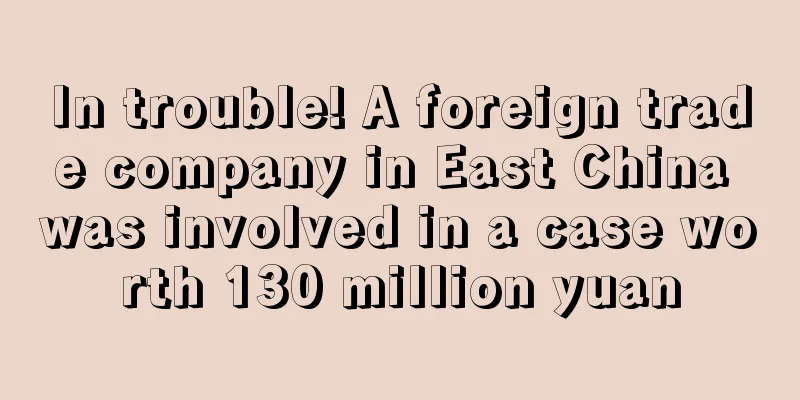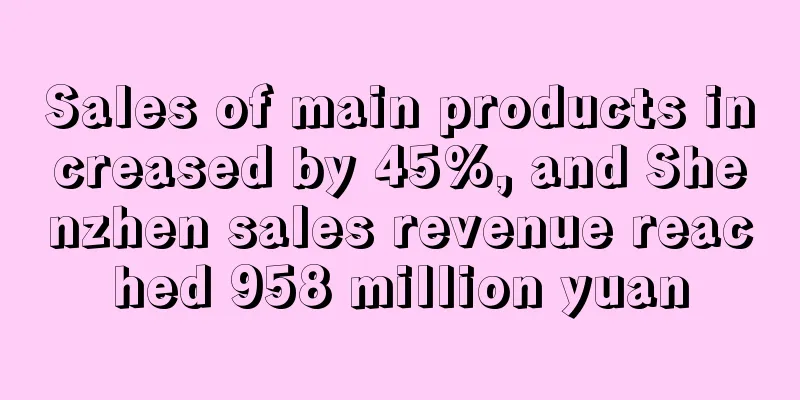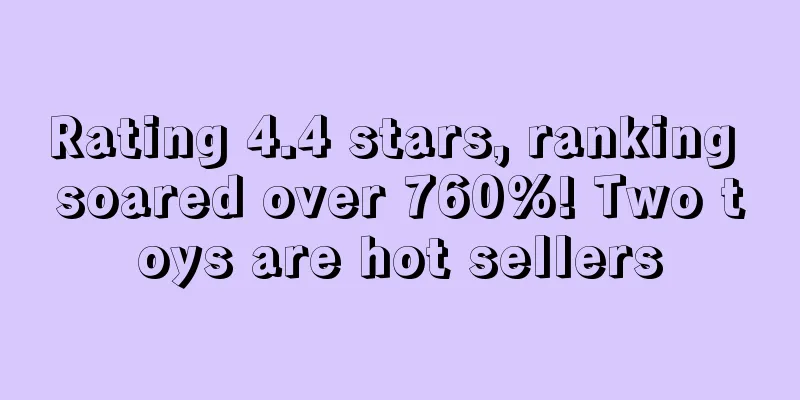In trouble! A foreign trade company in East China was involved in a case worth 130 million yuan

|
For a long time, some foreign trade enterprises have been using various means to defraud export tax rebates and have been unable to stop their illegal and criminal activities.
Recently, an incident in which a foreign trade company in Wenzhou defrauded 130 million yuan in export tax rebates has attracted considerable attention in the industry.
A foreign trade company in Wenzhou defrauded 130 million yuan in export tax rebates
It is understood that in November 2023, the Second Taxation Branch of Wenzhou Taxation Bureau of the State Administration of Taxation issued an announcement stating that an international trade company in Wenzhou defrauded export tax rebates of up to 130 million yuan.
According to the information in the tax administrative penalty decision, the company involved is Wenzhou Xguan International Trade Co., Ltd.
It is understood that in the course of its daily operations, the company obtained false value-added tax invoices from 80 companies including Zhejiang X Golden Bird Shoes Co., Ltd., Zhejiang XX Family Shoes Co., Ltd., Wenzhou Xting Princess Shoes Co., Ltd. , and the cumulative amount of tax refunds was 137,783,183.69 yuan.
According to the provisions of China's Criminal Law on the trial of criminal cases involving fraud in export tax rebates, the company's behavior was characterized as tax evasion by false export reporting, and it defrauded a total of 137,783,183.69 yuan in export tax rebates.
The companies involved declared export goods in the name of their own units and defrauded the state of export tax rebates.
Ultimately, the company was penalized to have its export tax refund (exemption) qualification suspended for thirty-six months.
A large number of tax evasion cases have been exposed in many places, and those with serious circumstances have been sentenced to life imprisonment!
At the beginning of this year, a more serious case of a company defrauding export tax rebates occurred in Beijing, and the main culprit was sentenced to life imprisonment .
It is understood that Beijing Municipal Taxation, Public Security Customs, People's Bank and other departments jointly investigated and dealt with a case of two export companies, including a Beijing trading company, defrauding export tax rebates in accordance with the law .
The method these companies used to defraud export tax rebates was to simply process precious metals such as gold and silver that were not eligible for tax rebates, and then disguise them as tax rebate-eligible products such as high-performance wire hollow inductors for export .
In accordance with the law, the Beijing tax department recovered 130.8462 million yuan in export tax rebates defrauded by these companies and refused to refund 117.1897 million yuan.
Finally, the Beijing No. 3 Intermediate People's Court made a first-instance judgment on the case. The principal offender Yang was sentenced to life imprisonment for the crime of defrauding export tax rebates , and eight accomplices were sentenced to fixed-term imprisonment ranging from 5 to 7 years for the crime of defrauding export tax rebates .
Such cases occur frequently. Just last month, another case of export tax rebate fraud occurred in Shanghai. The Economic Investigation Corps of the Shanghai Public Security Bureau, together with the Baoshan Public Security Bureau, arrested a total of 11 suspects.
Unlike other crimes involving disguised products, this case involves multiple links such as false invoices for tax evasion and illegal currency exchange . These foreign trade companies "used props to export 48 times" and evaded tens of millions of yuan in taxes .
At the beginning of this year, the police and the tax inspection department discovered during an investigation that many sporting goods retailers in Shanghai clearly purchased "badminton rackets" and "tennis rackets" and other sporting goods, but when selling them to the outside, they issued a large number of sales invoices with the names of "badminton strings" and "tennis strings" , which raised suspicion of altering invoices and issuing false invoices.
It is understood that the main culprit Hu registered and established more than 10 foreign trade import and export companies in Shanghai, and then purchased a total of 10 tons of low-grade badminton and tennis strings at a low price ranging from 0.65 to 0.9 yuan per string, and then used these products as props for export declaration.
Hu reached a deal with a group of sporting goods retailers located in Zhejiang, Fujian, Guangdong, Liaoning, Shanghai and other places, paying 3% of the face value and asking these retailers to change the product names of surplus invoices that had not been issued to the outside during their own operations to "badminton string" and "tennis string" without any real business transactions, and then issue false invoices to Hu's multiple foreign trade companies at a price of 25-64 yuan per piece.
In this way, Hu obtained an input invoice that matched the information of the low-grade wire goods , and then declared it for export after packaging .
At the same time, Hu also contacted an underground money laundering criminal gang and illegally exchanged foreign currency by paying a 5% handling fee to fabricate foreign business payments in order to obtain foreign exchange receipts records.
Finally, Hu applied for export tax rebate to the tax authorities.
After this step, Hu's tax fraud did not end. After exporting the "packaged" products abroad, he would change the product name to "mowing line", and then declare them for import at a very low price, and then defraud the export tax rebate.
It is understood that by the time the case was discovered, Hu had colluded with other accomplices to defraud export tax rebates totaling tens of millions of yuan.
At present, the case is under further investigation.
Cross-border enterprises should beware of being involved in the vortex of export tax fraud
In recent years , the number of cases where cross-border enterprises have been convicted of fraudulent export tax rebates has increased year by year. Under this circumstance, China has also been strengthening its crackdown on the crime of fraudulent export tax rebates.
Generally speaking, these illegal cross-border enterprises use the following methods to defraud export tax rebates :
1. Fabricating the fact of export of taxed goods;
2. Falsely reporting the basis for calculating tax refund (exemption) for exported goods;
3. Falsely reporting the export of goods with high tax rebate rates by using goods with low tax rebate rates;
4. Providing false export tax refund (exemption) certificates by forging, altering or other improper means;
5. Fraudulently obtain the qualification for tax refund (exemption) for exported goods;
6. Other means of false export declaration, including the use of illegal bank accounts, certificates, etc.
If a cross-border enterprise is found to have committed tax evasion , the consequences are quite serious. In addition to being required to pay back taxes and facing administrative penalties, serious cases will also be referred to judicial authorities in accordance with the law , and may even face severe criminal sanctions .
According to the Tax Administration Law of the People's Republic of China , "If there is any behavior of defrauding export tax rebates, the tax authorities shall recover the defrauded tax rebates and impose a fine of not less than one times but not more than five times the defrauded tax amount; for those who defraud the state's export tax rebates, the tax authorities may stop processing export tax rebates for them within the prescribed period. If it constitutes a crime, criminal liability shall be pursued in accordance with the law."
The Criminal Law of the People's Republic of China stipulates that " whoever defrauds the state of export tax rebates by falsely reporting exports or other deceptive means, if the amount is relatively large, shall be sentenced to fixed-term imprisonment of not more than five years or criminal detention and a fine of not less than one time but not more than five times the amount of tax defrauded; if the amount is huge or there are other serious circumstances, he shall be sentenced to fixed-term imprisonment of not less than five years but not more than ten years and a fine of not less than one time but not more than five times the amount of tax defrauded; if the amount is especially huge or there are other especially serious circumstances, he shall be sentenced to fixed-term imprisonment of not less than ten years or life imprisonment and a fine of not less than one time but not more than five times the amount of tax defrauded or confiscation of property. "
Some cross-border companies may be suspected of tax evasion due to their lack of tax compliance awareness, and some may even be affected by suppliers, foreign companies, and transporters .
It is understood that many cases involved downstream companies because the invoices of upstream companies were found to be false .
Therefore, cross-border enterprises must pay special attention to export tax rebates . They can conduct self-inspections and self-corrections at key points in the business process on a daily basis to form a standardized tax rebate compliance mechanism. |
<<: A gang worked with 7 insiders to defraud Amazon of millions of dollars
>>: With a loss of 700 million yuan a year, "North American Foot Fitness" entered Amazon for change
Recommend
New cross-border opportunities! AliExpress's strong growth in the Korean market has attracted praise from Korean media
Recently, the authoritative Korean media "Se...
What is breathingcolor? breathingcolor Review, Features
breathingcolor is a media company that focuses on ...
Kaola.com launches luxury goods subsidy for the first time, GUCCI bags are 50% off
On March 2, Kaola.com launched its first luxury g...
China's new crown vaccine "exclusive charter flight" arrived in Timor-Leste, escorted by Cainiao International Pharmaceutical Cold Chain
This batch of materials includes 100,000 doses of...
What is BidorBuy? BidorBuy Review, Features
BidorBuy is an important online shopping mall in ...
Counterfeit goods are rampant in Southeast Asia, and consumers may be indirectly helping the crime
The outbreak of the epidemic in early 2020 has br...
"Cafe-style" home decoration is popular in South Korea, and this product is in short supply!
It has to be said that Korean consumers are extre...
Please note! Japan plans to end the state of emergency on March 7
Currently, the Japanese government has stated tha...
What is HalstonHeritage? HalstonHeritage Review, Features
Halston Heritage is a creator of American luxury f...
Another Amazon seller has been sued, and the products involved have been forcibly removed from the shelves!
Recently , 13 sellers on the Amazon platform were...
With an annual salary of 2 million, a "working emperor" appears in the cross-border circle
Many industries have executives known as "em...
The US market has recovered and the retail industry has returned to pre-epidemic levels
NPD reported that U.S. retail sales had reached p...
What is kylebunting? kylebunting Review, Features
KyleBunting specializes in a material that has inc...
What is Yiyuncang? Yiyuncang Review, Features
Yiyuncang is an Internet technology company focusi...
What is UPC Exemption? UPC Exemption Review, Features
UPC exemption means that sellers who want to sell...









